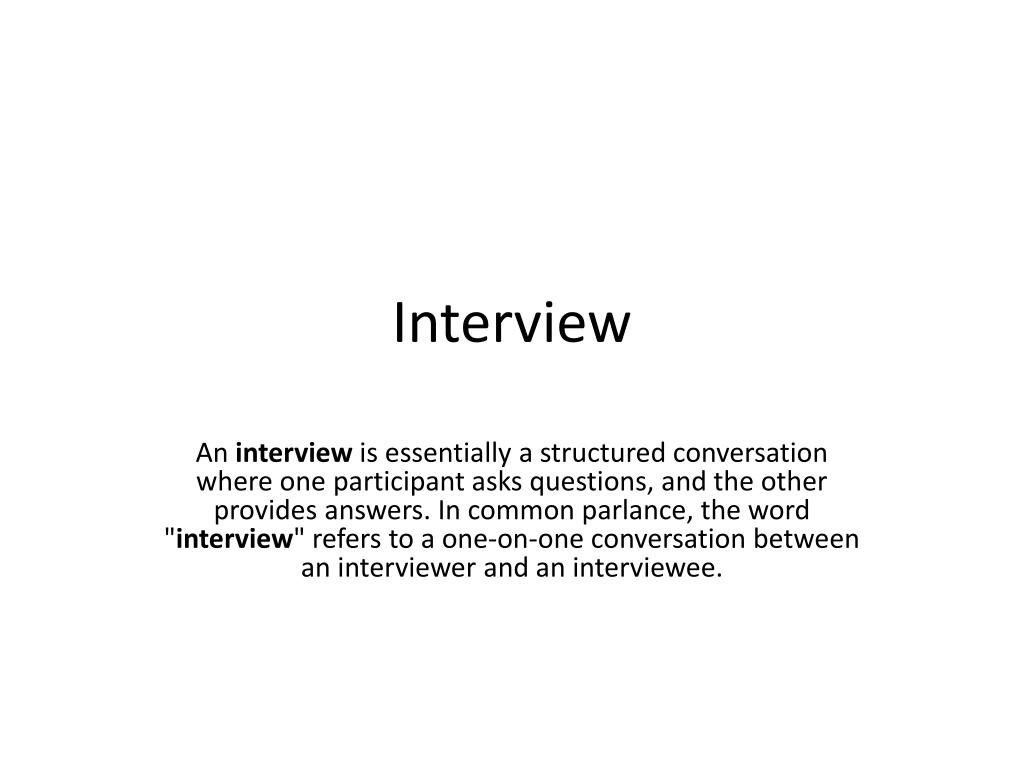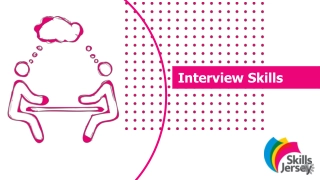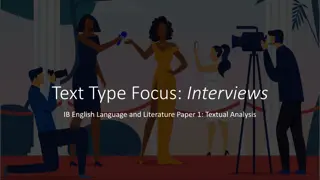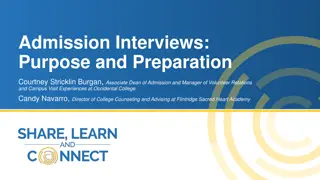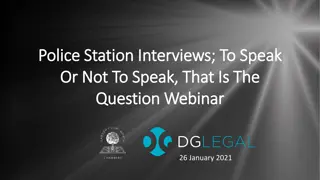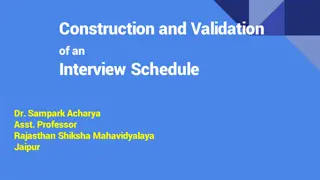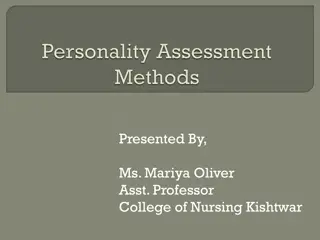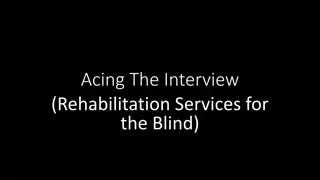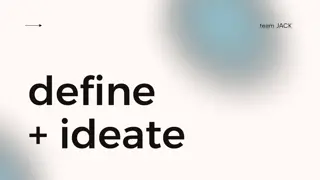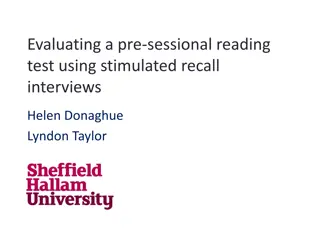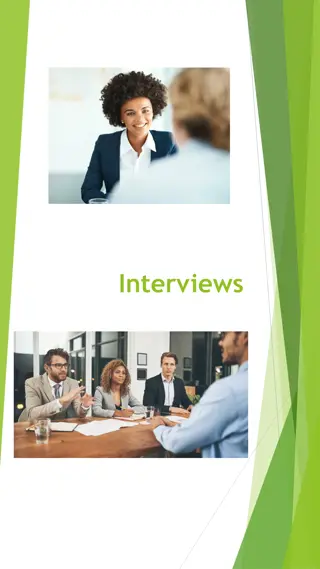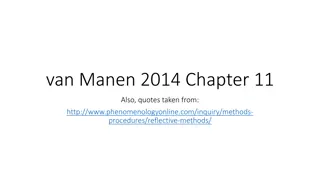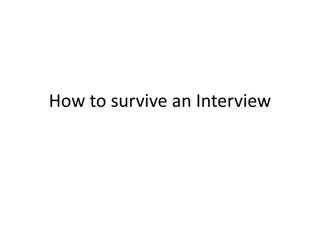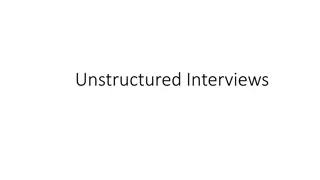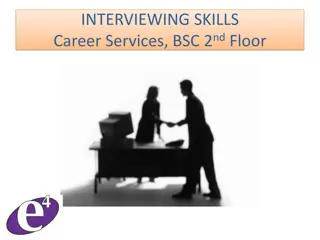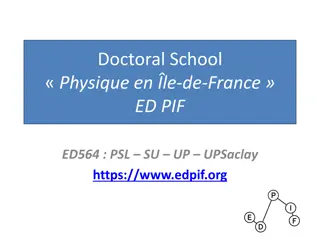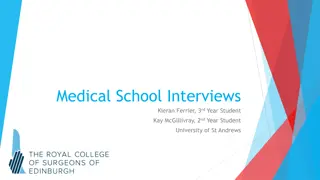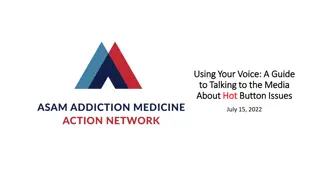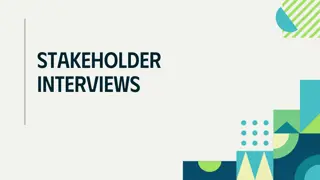Understanding Different Types of Interviews
An interview is a structured conversation where one participant asks questions and the other provides answers. This article explores various types of interviews such as news interviews, profile interviews, hard news interviews, informational interviews, personality interviews, and more. Each type serves a different purpose and involves unique preparation and questioning techniques to gather information effectively.
Download Presentation

Please find below an Image/Link to download the presentation.
The content on the website is provided AS IS for your information and personal use only. It may not be sold, licensed, or shared on other websites without obtaining consent from the author. Download presentation by click this link. If you encounter any issues during the download, it is possible that the publisher has removed the file from their server.
E N D
Presentation Transcript
Interview An interview is essentially a structured conversation where one participant asks questions, and the other provides answers. In common parlance, the word "interview" refers to a one-on-one conversation between an interviewer and an interviewee.
Interview An interview is essentially a structured conversation where one participant asks questions, and the other provides answers. In common parlance, the word "interview" refers to a one-on-one conversation between an interviewer and an interviewee.
Types of Interview News interview: The purpose is to gather information to explain an idea event or situation in the news. Profile: The focus is on an individual. A news peg often is used to justify the profile. For effective interviews, reporters prepare carefully, and they ask questions
The hard news interview The hard news interview is normally short, to the point, and to illustrate a bulletin or news item. It deals, only with important facts, or comments and reactions to those facts. The hard news interview, as a matter of fact, aims at getting answers to five Ws and one H.Budget, Elections, In case a building is set on fire, the reporter will conduc t interviews of those figures who can give him exact or almost exact information about the incident. at induce the source to talk freely.
Informational Similar to hard news but not restricted to major stories. Can be about events - something that is happening or about to happen. Can also provide background.
Personality Interview The personality interview is usually obtained for preparing a feature story and ordinarily does not figure in a news story. There is not enough space in a daily news paper for such an in-depth interview.
Continued Well known people from different walks of life, and attempted to get beneath their skins to find out, not what they do, but why they do it, what drives and motivates them and what in their past has made them the people they are today? In short, what makes them tick? Published in Magazines and Special Editions
Stages/Post Interview Step 1: Research, Research, Research Then research some more. The only way to come up with good questions is to know everything there is to know about your subject. Step 2: Contact the Person You Wish to Interview Ask when a good time would be to do the interview. Be polite. Say "please" and "thank you." Try to set up the interview in person. If this isn't possible, then set up a phone interview.
Step 3: Read Over Your Research and Brainstorm a List of Questions The more specific your questions are, the better. And never ask questions that can be answered with a simple yes or no. Make your interviewee talk. Be sure to write all your questions down in a notebook, then practice asking them with a partner. Become very familiar with your questions before you go into the interview.
Continued Step 4: Come Prepared You will want to bring: A pencil A notebook A list of good questions A recording device (always ask permission before recording an interview)
Continued Step 5: Be on Time Arrive at your interview with plenty of time to spare. If you ve never been to the place where your interview is taking place, go early and scout it out. There is nothing more unprofessional than a reporter who is late. You can also use the time you are waiting to make notes about the surroundings. You won t remember details later, so write them down.
During the interview: Be courteous to your subject. Always take time to ask for an explanation about things you don't understand. Don t be afraid of uncomfortable silences and pauses. Let the interview take its natural course. Look the person in the eye when asking questions. Always listen carefully to the answers. Each answer could lead to more questions or include an answer to a question you haven t asked yet. Don't ask a question that has already been answered. Your subject will know you weren't listening and be insulted.
Continued Don't read through your questions one right after another like you can't wait to be finished. Conduct your interview like a conversation. One question should lead naturally into another. If you are LISTENING to the answers this will come naturally. Also, take notes on what the person looked like, what the person was wearing, where he or she sat. If the interview is in an office, make notes of what is on the walls and on the desk. The objects people surround themselves with hold important clues to their personalities. Ask about any object that interests you. You ll find some good stories.
Continued Even If You Are Recording an Interview, Take Notes Don't try to write every word said. It will slow down the interview. Just take down the highlights.
After the interview, After the interview, while the details are still fresh in your mind, write everything down you can remember about the person you interviewed. At home, expand your notes by following up on things you learned in your interview with more research. Circle or highlight quotations that you think will be good for your article. Now you're ready to begin writing
